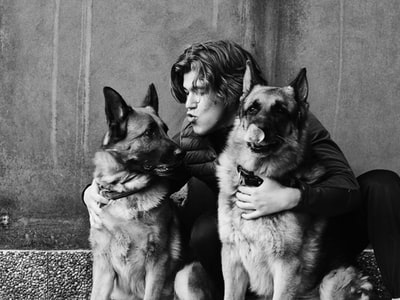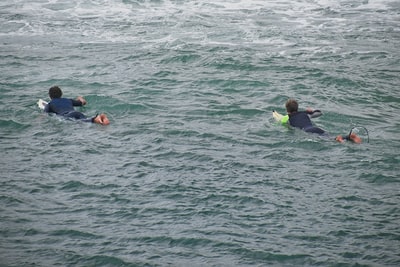Grammar
Here are some important verbs to do with shopping:
anprobieren – to try on
ausgeben – to spend
brauchen – to need
einkaufen – to shop
holen – to fetch
kaufen – to buy
kosten – to cost
warten – to wait
wechseln – to change
anbieten – to offer
liefern – to provide
verpacken – to pack
Shops

die Apotheke – pharmacy
die Bckerei – bakery
die Bank – bank
der Blumenladen – flower shop
die Buchhandlung – bookshop
die Drogerie -pharmacy
die Eisdiele – ice cream parlour
der Friseur – hairdresser
der Waschsalon – laundrette
der Supermarkt – supermarket
die Konditorei – confectionary shop
das Kaufhaus – department store
die Metzgerei – butcher
das Schreibwarengeschft – stationary shop
Anprobieren, ausgeben, anbieten and einkaufen are all separable verbs.
Learn it: Make sure you are familiar with all of the German Vocabulary about shopping:
Beim Geschft – at the shop
die Auswahl – selection
der Ausverkauf – clearance sale
die Marke – brand
das Schaufenster – shop window
das Sonderangebot – special offer
die Umkleidekabine – changing room
das Angebot – offer
ausverkauft – sold out
das Einkaufszentrum – shopping centre
gnstig – good value
der Kunde – customer
der Laden – shop
die Liste – list
der Markt – market
Schlange stehen – to queue
Paying:
Bazahlen – Paying
der Cent – cent
der Geldschein – bank note
die Kreditkarte – credit card
der Rabatt – discount
die Quittung – receipt
das Taschengeld – pocket money
die Kasse – checkout
kostenlos – free
das Pfund – pound
der Preis – price
reduziert – reduced
der Euro – euro
das Geld – money
das Bargeld – cash
das Kleingeld – small change
sparsam – economical
Grammar
Which preposition do I use?
Usually, if you are going to end up inside a shop then use in: Ich gehe in die Bckerei
Remember that here the preposition in uses the accusative case. For an explanation of prepostions which take the accusative and dative click here. (Link to grammar: prepositions)
In
Usually, if you are going to end up inside a shop then use in: Ich gehe in die Bckerei
Remember that in can take the accusative or dative.
Auf
Use auf if you are going to end up on something: auf die Strae, auf den Berg.
Unfortunately there are almost always exceptions, such as: “Ich gehe auf den Markt”.
Auf is also used for events: Ich gehe auf eine Hochzeit, Ich gehe auf eine Party.
Remember that auf is an accusative preposition.
1. Test it: Using the shopping vocabulary write the following sentences in German using um…zu which means “in order to…”.
When you are using um… zu, you need to use it with an infinitive verb. Remember that um sends the infinitive to the end of the clause. If the question tells you how to pay then say how you will pay using the future tense (Link to grammar: future tense): Ich werde mit _____ bezahlen.
For example:
Bakery – to buy 4 bread rolls – pay with change
Ich gehe in die Bckerei um vier Brtchen zu kaufen. Ich werde mit Kleingeld bezahlen.
a) bank – to collect money
b) electrical store – to change a TV
c) supermarket – to go shopping – pay with credit card
d) clothes shop – to try on a jacket.
e) book shop – to choose 2 books – pay with cash
f) shopping mall – to spend pocket money
Answers:
a) Ich gehe in die/zur Bank um Geld zu holen
b) Ich gehe ins/zum Elektrogeschft um ein Fernseher zu wechseln
c) Ich gehe in den/ zum Supermarkt um einzukaufen. Ich werde mit einer Kreditkarte bezahlen.
d) Ich gehe ins/ zum Kleidungsgeschft um eine Jacke anzuprobieren.
e) Ich gehe in die/ zur Buchhandlung um zwei Bcher zu whlen
f) Ich gehe ins/ zum Einkaufszentrum um mein Taschengeld auszugeben.
Now take a look at the vocabulary on clothes:

der Anzug – suit
der BH – bra
die Bluse – blouse
der Grtel – belt
das Hemd – shirt
die Hose – trousers
der Hut – hat
die Jacke – jacket
das Kleid – dress
der Mantel – coat
modisch – fashionable
die Mtze – cap
der Pulli – sweater
der Schal – scarf
schminken (sich) – to put on make-up
der Schmuck – jewellery
der Schuh – shoe
sich umziehen – to get changed
die Socke – sock
die Tasche – bag
2. Test it – What clothes should these people wear on these occasions? To say he/ she should, you need to use “sollen” in the conditional tense.
| ich | sollte |
| du | solltest |
| er/sie/es | sollte |
| ihr | solltet |
| wir | sollten |
| Sie | sollten |
To say “he should wear” you need to use “er sollte” with the infinitive: Er sollte _______ tragen. As there are two verbs in the sentence, the infinitive is sent to the end. Remember that when you are using modal verbs you do not need to use zu with infinitive forms.
a) Jakob: Ein sehr kalter Wintertag?
b) Susanne: Ein Tennisspiel
c) Christian: Ein Vorstellungsgesprch
d) Julia: Ein romantisches Date
e) Andreas: Beim Bergsteigen
3. Remember it- Speaking practice – Choose 5 people from a magazine and describe what they are wearing in as much detail as possible.
4. Writing practice – When was the last time you went shopping? Where did you go? Who did you go with? Did you try anything on? Did you buy anything? Make sure you have learned the past participles of the shopping verbs before you start writing!
Once you feel confident with the words above, learn these too:
die Abteilung – department
der Automat – machine
der Eingang – entrance
der Einkaufskorb – shopping basket
der Einkaufswagen – shopping trolley
das Elektrogeschft – electronics shop
es passt dir/ es steht dir – it suits you
das Fischgeschft – fishmonger
die Fleischerei – butcher
das Juweliergeschft – jewellery store
das Kleidungsgeschft – clothing shop
der Ladenbesitzer – shop keeper
das Lebensmittelgeschft – grocery store
der Notausgang – emergency exit
der Obst- und Gemseladen – fruit and vegetable shop
die Parfmerie – perfumery
das Souvenir – souvenir
die Sparkasse – savings bank
das Tabakwarengeschft – tabacco shop
der Zeitungskiosk – news kiosk
Extra clothes:

die Halskette – necklace
der Handschuh – glove
die Handtasche – handbag
der Hausschuh – slipper
Klamotten (pl) – clothes
das Kostm – costume
die Krawatte – tie
die Mode – fashion
das Nachthemd – nightgown
der Ohrring – earring
das Parfm – perfume
passen – to fit/suit
die Unterhose – underpants
der Stiefel – boots


